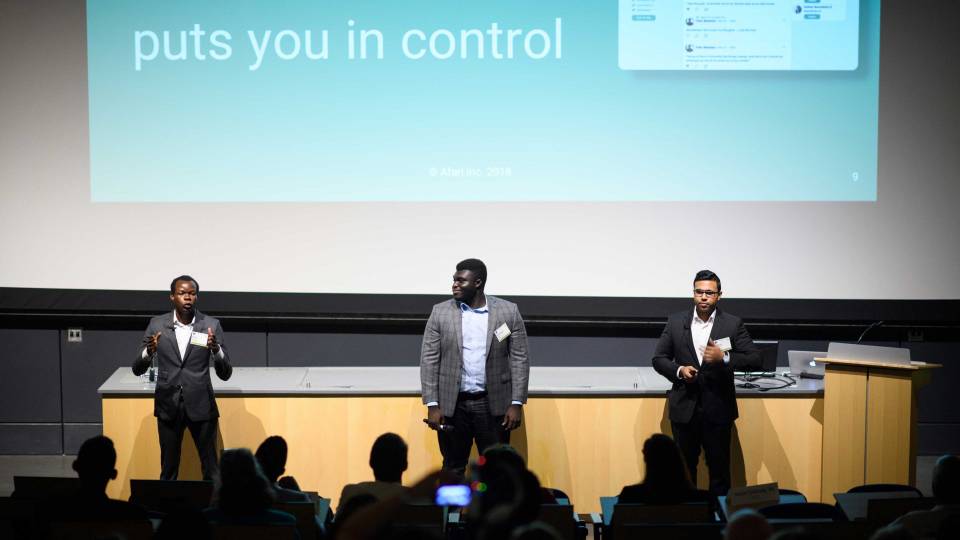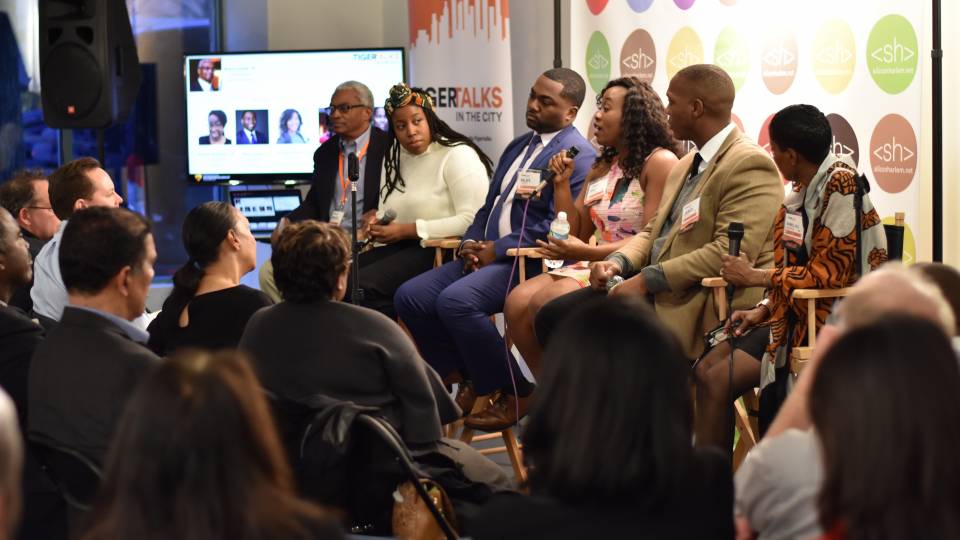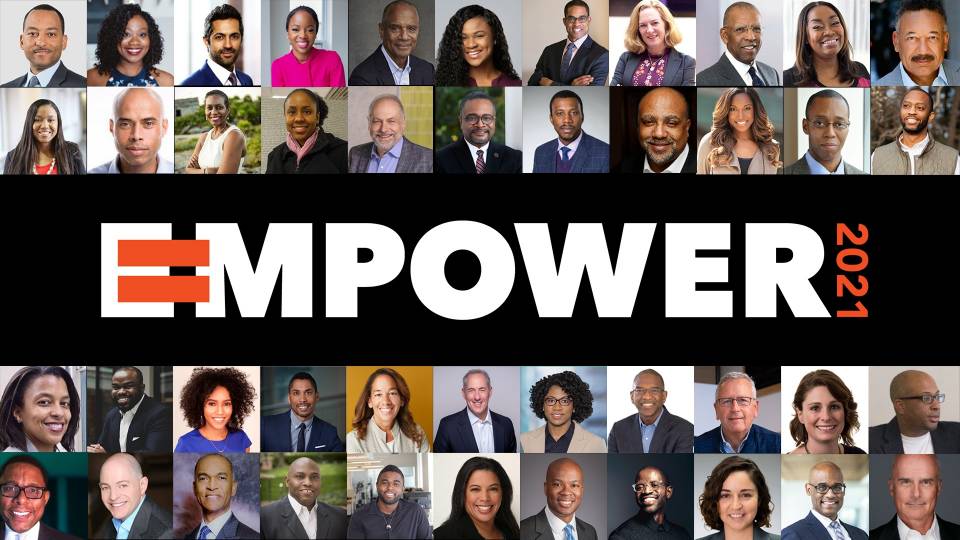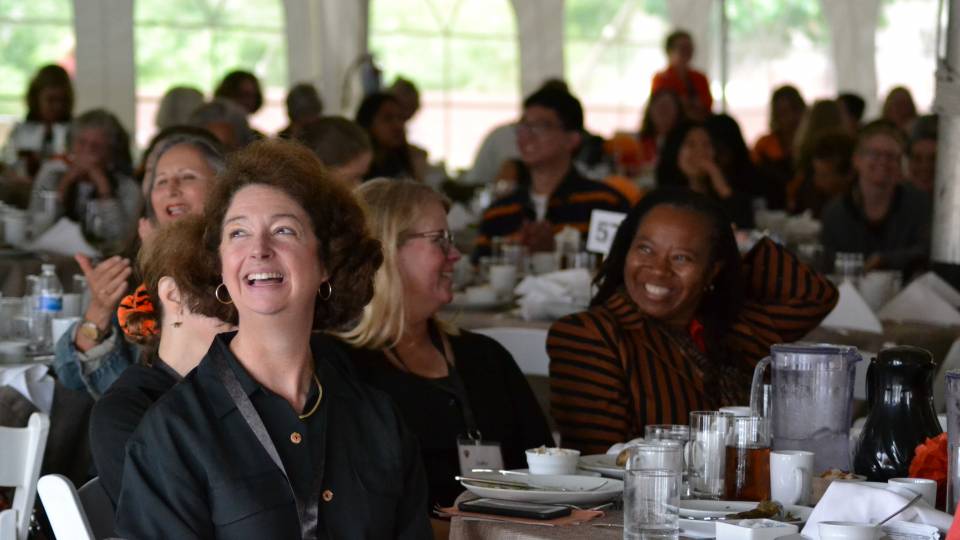In her years in business, Princeton alumna Joy Marcus has moved from success to success. She headed divisions at major corporations, helped take a company public, and guided an Internet startup from launch to acquisition. Recently, she joined the venture capital firm DJF Gotham as a venture partner.
In her career, Marcus said, she has felt "completely unlimited." So it was bit jarring when she attended her first firm meeting this year in Half Moon Bay, Calif., and saw she was one of fewer than 10 women among approximately 150 attendees.
"It was shocking to actually sit in a large room with all of my colleagues, almost all of whom were men," she said. In fact, Marcus said, DJF Gotham is very welcoming to women. Yet she finds the relatively small number of women involved in the startup industry troubling.
"I think for the most part, male investors tend to be even-handed and fair," she said. But it can be difficult for female entrepreneurs to build their companies and almost never meet another woman in the process. "That is the typical experience of the female entrepreneur."
Marcus, a 1983 Princeton graduate, told her story as part of a panel of Princeton alumni and other entrepreneurs and business leaders hosted by the University's Keller Center Dec. 7 at Bowen Hall. The panel, titled "Women in Entrepreneurship," focused on opportunities and challenges posed by the underrepresentation of women in startup companies and venture capital. The panel also included Alexandra Landon, a senior who is co-president of the Princeton Entrepreneurship Club.
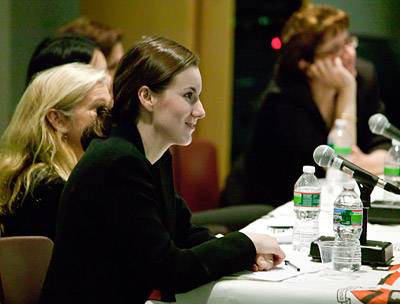
A panel discussion on "Women in Entrepreneurship" explored issues related to the underrepresentation of women in startup companies and venture capital. The panel, hosted by Princeton's Keller Center, included alumni and other entrepreneurs and business leaders, along with Alexandra Landon (above), a senior who is co-president of the Princeton Entrepreneurship Club. (Photo by Brian Wilson)
Venture capitalist and Princeton alumna Kef Kasdin opened the discussion by referring to a recent study showing that despite female leadership in traditional business, women are involved in startups at roughly half the rate of men. The study, by the Kauffman Foundation, also found that women make up only about 11 percent of venture capitalists, and that female faculty members sit on science advisory boards of high-tech companies at a far lower rate than their male counterparts.
"When I graduated from Princeton in 1985, I never imagined we would be having this conversation in 2011," said Kasdin, a founding general partner at Battelle Ventures and CEO of Proterro Inc.
While all the panelists agreed that the numbers were deeply troubling, they had no consensus on why women are underrepresented in business startups. For the most part, the panelists said they had not been limited in their own careers. Entrepreneur Natasha Gajewski said she has walked the hard road that any entrepreneur faces in establishing her Symple Symptom Tracker, an app that allows patients to better manage their medical care. But Gajewski, who started her effort seven months ago, said the difficulties were common to all entrepreneurs.
"I just never imagined limitations based on my sex," she said. "It just never occurred to me."
Marcus said that, as a female partner at DJF Gotham, she had found that frequently her perspective as a woman offered an advantage. Still, she said, most of the business proposals she reviews from women entrepreneurs tend to be in fields traditionally driven by women, such as fashion.
Marcus found this puzzling because women play a key role in many industries such as advertising and the media. In a recent article in TechCrunch, venture capitalist Aileen Lee pointed out that female users and consumers are driving the development of the Internet — with women accounting for most of the activity on sites including Facebook (62 percent of activity) and Groupon (77 percent of customers.)
"They know the industry better than anyone," Marcus said. "So why aren't they doing that?"
Landon, the Princeton senior, offered a different generational perspective on the issue. She said that she felt there were far fewer societal barriers facing women in business, but she felt that sometimes women needed to overcome personal doubt.
"A lot of what people used to talk about is giving women opportunities," she said. "Now, we are talking about structural mechanisms to ensure women take advantage of those opportunities … or overcome self doubt."
Landon mentioned one classmate who had been reluctant to fill out a competitive application for last fall's TigerTrek, a trip that offered students an opportunity to meet with business leaders in Silicon Valley.
"She said, 'I just did not think it was something that someone like me would get,'" Landon recalled. But by the end of the trip, "she was clearly one of the best participants."
Landon noted that Princeton President Shirley M. Tilghman has made a particular effort to encourage women to take advantage of those opportunities. Tilghman formed the Steering Committee on Women's Undergraduate Leadership, which last spring released a set of recommendations aimed at encouraging greater leadership roles for University women. In a recent speech, Tilghman pointed out that between 2005 and 2010, all 11 Princeton students named Rhodes Scholars were men. This year, three of Princeton's Rhodes Scholarship winners were women, due to efforts to encourage more female applicants.
"I have never felt my gender was an issue," Landon said. She said earlier generations had made tremendous progress in taking down gender barriers, and that new approaches were needed to build on their success.
As a charge to those who will encourage the next generation of leaders, she said, "What are the barriers that are less apparent?"
